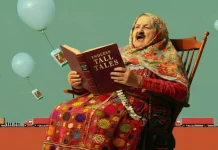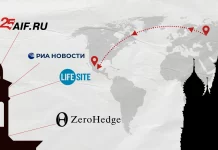Weekly update on Kremlin disinformation efforts in Europe
- Frankfurter Allgemeine Zeitung reported what the pro-Kremlin scene in the Czech Republic looks like. Citing the Head of the Kremlin Watch Program, Jakub Janda, it names Czech politicians and disinformation media spreading the pro-Russian narrative. It also mentions the participation of the Director General of the Czech public radio broadcaster on the Kramerius Award for Independent Journalism ceremony, along with several personalities contributing to the pro-Kremlin disinformation campaign in the Czech Republic.
- The CEPA Forum will take place in Washington, D.C., on September 28 – 29th. This year’s theme is “Saving the West: Priorities and Principles.” Among the specific topics on the agenda there are: the sate of transatlantic security in the light of growing Russian pressure, cyber security challenges, and the impact of Russian disinformation in Central and Eastern Europe.
- The Defence Committee of the British Parliament published a report which warns against military threat posed by Russia. Among other things it recommends “to increase the number of experts advising Britain on Russia, to renew sanctions, to impose fresh travel bans on Russia’s leadership and to find ways to deal with Russian propaganda.” Unfortunately, the report does not set any specific policy recommendations and is unlikely to significantly influence the British or EU policy.
- Till Lindermann, the lead singer of the German metal band Rammstein, denied the reports published by several pro-Kremlin outlets including Sputnik that he supports Vladimir Putin, alongside a doctored image of Lindermann wearing a shirt with a picture of the Russian President.

The latest issue of the EEAS East StratCom Task Force Disinformation Review focuses on how the pro-Kremlin propaganda outlets in Europe portrayed the results of the Brexit referendum.
Kremlin Watch reading suggestions
“Russia: Implications for UK defence and security”; a report by the British House of Commons Defence Committee
“Russia has increasingly demonstrated military aggressiveness in different regions, as well as the ability to create confusion, fear and doubt in others, including NATO member states. Because it perceives these methods as successful, and because they appear to Russia to be unchallenged, it is likely that Russia will continue to use military means and unconventional warfare as ways of reasserting what it believes to be its rightful role on the international stage. Many of the Russian actions directly challenge the rules-based international order. Lukewarm responses will not gain respect from Russia, will not improve our relationship with Russia, nor engineer a more palatable environment for European defence. The UK and NATO must employ robust and firm responses. Russia must be certain that Article 5 would be triggered should NATO consider that one of its member states has been the subject of an armed attack and effective countermeasures must be designed to deter potential Russian tactics tailored to circumvent the Article 5 guarantee.”
Euroatlantic experts on disinformation warfare
- John R. Schindler describes for The Observer how the practices of Russian intelligence services evolved since the Soviet era and what new threats they pose now in the light of the latest cases of harassment of the US diplomats.
- Una Bergmane from the Foreign Policy Research Institute evaluates the impact of Russian disinformation campaign on Latvia and recommends providing wider range of information sources accompanied by a long-term commitment to education.
- Gordana Knezevic explains for the RFE/RL why Russian propaganda is successful in the Balkan countries and what tools it uses.
- Alexander Golts wrote a commentary for ECFR dedicated to Kremlin’s foreign policy tools, annexation of Crimea, and the hybrid war in the Donbas.
Current state of pro-Kremlin scene in the Czech Republic
Why is everyone provoking Russia and talking about tough stance against it when all it wants is peace? However, according to one of the Czech pro-Kremlin websites the situation is starting to turn around. During the last week it published several articles about politicians who warned against demonizing Russia and wondered why Russia was seen as an aggressor, for example German ex-Deputy Minister of Foreign Affairs Ludger Volmer or Czech MP Jeroným Tejc.
Nevertheless, the real topic of the week is the NATO Summit in Warsaw. Several websites published an open letter to the Czech Prime Minister and encouraged people to go demonstrate against the Summit, mostly arguing that NATO and its Member States systematically commit war crimes, behave undemocratically and against the interest of their citizens. They also suggested that the Summit agenda breaches international treaties of which the Czech Republic is a part. (1, 2)
Infographic of the week

Kremlin Watch is a strategic program of the European Values think-tank, which aims to unravel and confront instruments of Russian hybrid war which is focused against liberal-democratic system. Find out more at www.europeanvalues.net/




